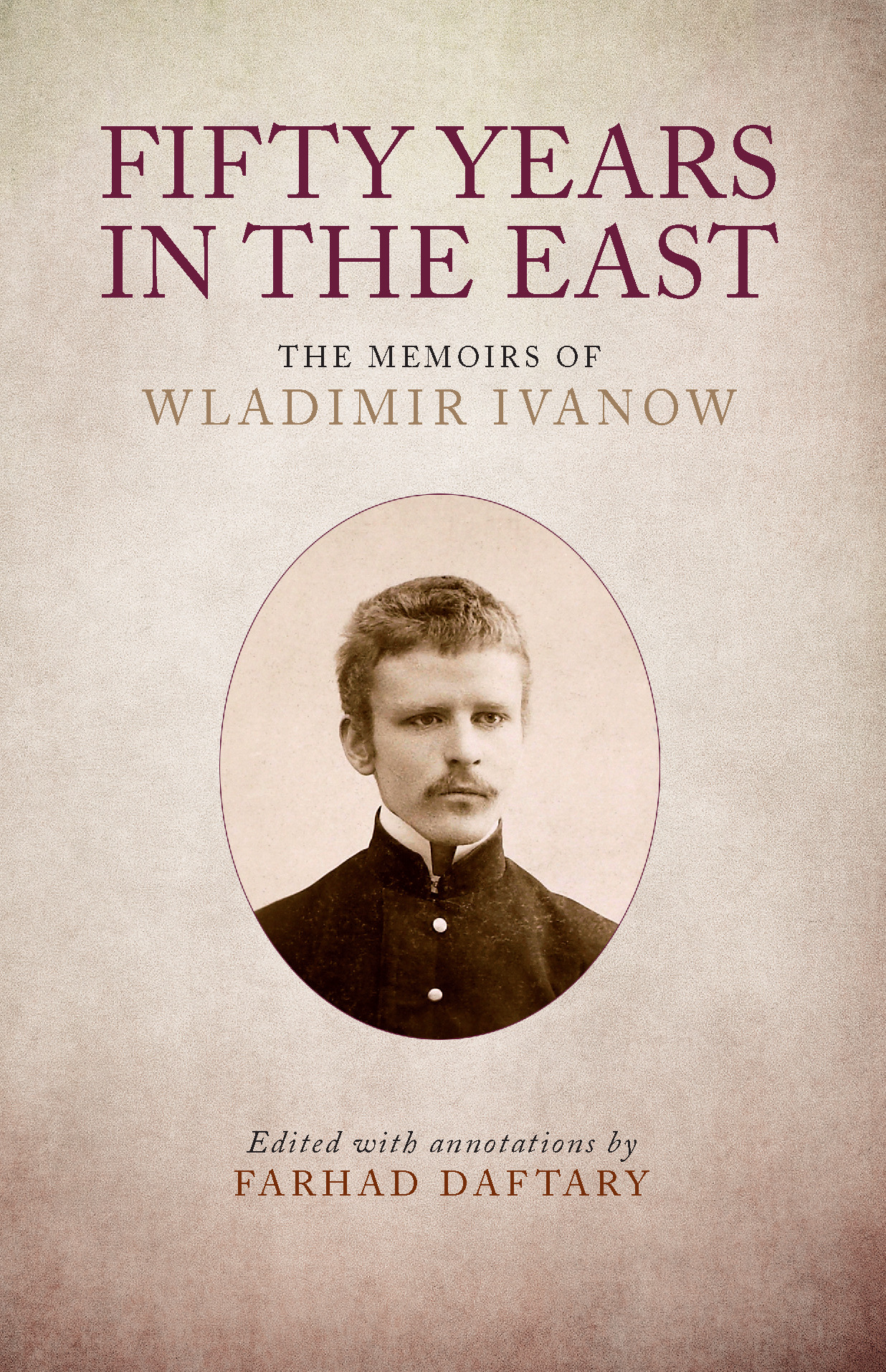Few fields of Islamic studies have witnessed as much progress in modern times as Ismaili studies, and in even fewer instances has the role of a single individual been as pivotal in initiating progress as that of Wladimir Ivanow (1886–1970), whose memoirs are now published here for the first time. The breakthrough in modern Ismaili studies occurred mainly as a result of the recovery and study of a large number of texts relating to the field, which had not been available to the earlier generations of orientalists. The Persian and Arabic Ismaili manuscripts, many edited and published by Ivanow, reflect a rich diversity of intellectual and literary traditions. Ivanow left his native Russia soon after the October Revolution of 1917 and settled in India where he was formally commissioned in 1931 by Sultan Muhammad Shah Aga KhanA title granted by the Shah of Persia to the then Ismaili Imam in 1818 and inherited by each of his successors to the Imamate. III, the 48th Imam of the Nizari IsmailisAdherents of a branch of Shi’i Islam that considers Ismail, the eldest son of the Shi’i Imam Jaʿfar al-Ṣādiq (d. 765), as his successor., to investigate the history and teachings of the Ismailis. Henceforth, Ivanow began the systematic recovery and study of texts from this tradition of Shi‘i Islam, discovered in India, the Middle East and Central Asia, amongst other regions.
He also played a key role in the establishment of the Ismaili Society – the first research institution of its kind with a major collection of Ismaili manuscripts. Ivanow made these manuscripts available to other scholars, thereby contributing to further progress in the field. Ivanow completed his memoirs, entitled Fifty Years in the East, in 1968, shortly before his death. This work, originally written in Russian, is comprised of an autobiography and vivid accounts from his travels. These convey his ethnologist’s interest in ‘the archaeology of the way of life’ and profound curiosity for regional customs and languages. The memoirs, written in Tehran during Ivanow’s final years, have now been edited with substantial annotations by Farhad Daftary. They reveal for the first time the circumstances under which modern Ismaili studies were initiated and an eyewitness account of several regions during the early decades of the twentieth century before the rapid onset of modernisation.
List of Illustrations
Preface
1. Introduction
2. Modern Ismaili Studies and W. Ivanow’s Contributions
3. Autobiography
4. Impressions and Experiences
Appendices
Bibliography
Index
Farhad Daftary is Co-Director at The Institute of Ismaili Studies, London, and Head of its Department of Academic Research and Publications. An international authority on Ismaili studies, he is the author and editor of several acclaimed books in the field, including A History of Shiʿi Islam (2013), A Modern History of the Ismailis (2011), Ismaili Literature (2004), A Short History of the Ismailis (1998), The Assassin Legends (1994) and The Ismāʿīlīs: Their History and Doctrines (1990; 2nd ed., 2007). Dr. Daftary’s books have been translated into Arabic, Persian, Turkish, Urdu and numerous European languages.

